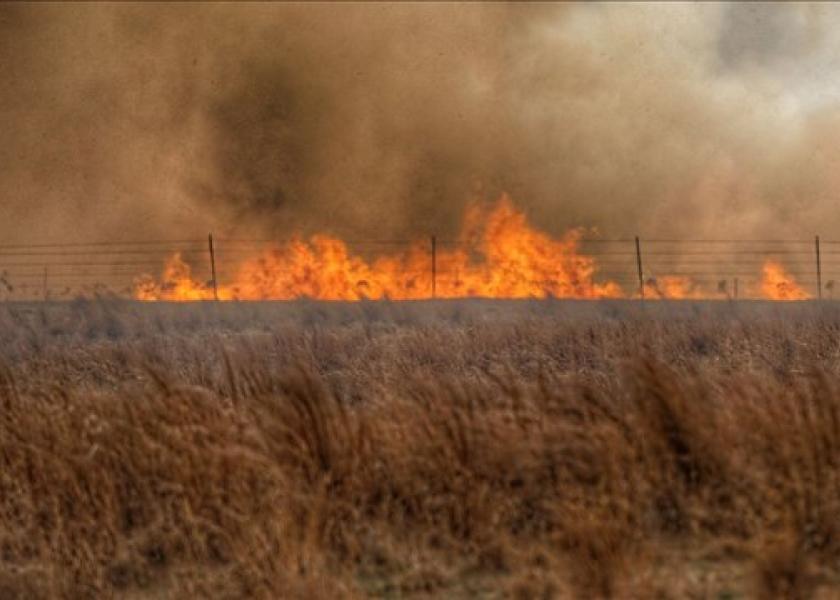Drought, Wildfires Force Ranchers to Scramble for Feed

KEN MILLER
Associated Press
OKLAHOMA CITY (AP) - Ongoing drought and wildfires have cattle ranchers in at least five Southwestern U.S. states scrambling for hay or pastureland, while others are selling off some of their herds.
Extreme and exceptional drought conditions have contributed to wildfires in Colorado, Kansas, Oklahoma, Texas and New Mexico, delaying the growth of or destroying grass and wheat used to feed cattle in spring.
"Finding hay out here in this part of the state is next to impossible," according to rancher Darrel Shepherd of Custer, Oklahoma, about 80 miles (129 kilometers) west of Oklahoma City. "Pastureland is really hard to find right now ... the wheat, with the drought and all, the wheat is no good."
Northwestern Oklahoma and the Oklahoma Panhandle - nearly 20 percent of the state - are rated in exceptional drought, the most severe category. Exceptional drought is also reported in parts of the Texas Panhandle, Colorado, Kansas, New Mexico and in Utah and Arizona.
Federal agriculture officials in New Mexico said ranchers may not have feed to maintain their herd sizes and that some are already trimming their herds, while farmers along the Rio Grande are bracing for less water to irrigate their crops.
In northwestern Oklahoma, two large wildfires that burned about 545 square miles (1412 sq. kilometers) destroyed pastures, but rains this past weekend helped firefighters bring the flames under control and began the process of restoring grassland.
"This last weekend was a godsend ... not enough to erase the drought," said Oklahoma State University agricultural economist Derrell Peel. "But it's a first step and the time of year is right for the grass to green up in the next few weeks."
Rains are needed to continue through at least the beginning of June in order to prevent Oklahoma ranchers from being faced with downsizing herds, Peel said, but even if that happens, he doesn't expect any impact on the price of beef.
"I don't think this area is big enough," Peel said. "We're still seeing an increase in beef production" nationwide.
Both Shepherd and Woods County Extension Agent Greg Highfill said ranchers in surrounding states are donating as much hay as possible to help keep livestock fed.
"Because of the drought there isn't as much extra hay to be donated as in other years," according to Shepherd. "People are being very generous and giving what extra hay they have."
Shepherd said he doesn't know where the hay is coming from, but is thankful for what has been provided.
"There's a lot of hay from out of state being shipped in. We don't have all we need but we're getting more in each day," he said. "You just can't thank those people enough."
___
Copyright 2018 The Associated Press.







